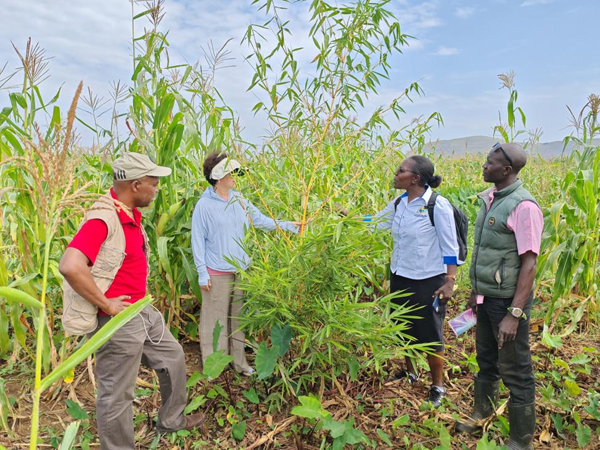
On June 11, researchers from the Xinjiang Institute of Ecology and Geography (XIEG) of the Chinese Academy of Sciences unveiled the Land Cover Atlas of Five Central Asian Countries (1990–2020) at the second Belt and Road Conference on Science and Technology Exchange. This atlas is the first bilingual (Chinese and Russian) professional land cover atlas for Central Asia, compiled by Chinese researchers.
View MoreResearchers from the Institute of Modern Physics (IMP) of the Chinese Academy of Sciences have precisely measured for the first time the mass of an extremely short-lived and neutron-deficient nucleus, silicon-22, revealing that the proton number 14 in silicon-22 is a new magic number.
Researchers at the Institute of Modern Physics of the Chinese Academy of Sciences confirmed that the fully stripped heavy ion-atom collision is an effective way to produce heavy hollow atoms in high yield. They have also developed a high-resolution planar crystal spectrometer to measure the fine structure of inner-shell multi-ionization ion X-rays.
A new study solves a long-standing climate mystery: Why don't the records of oxygen isotopes in cave formations like stalagmites—known as speleothems—from central southern China reflect the well-known 100,000-year cycles of ice ages seen in other global climate records? These speleothem records have long been considered a key indicator of the strength of the Asian summer monsoon, so their failure to show these major climate shifts has puzzled scientists for decades.
Prof. YAO Baoli from the Xi’an Institute of Optics and Precision Mechanics of the Chinese Academy of Sciences and Prof. Olivier J. F. Martin from Swiss Federal Institute of Technology Lausanne developed the optical tweezer sectioning microscopy, enabling all-optical 3D imaging of suspended live cells, which offers a powerful new tool for in live-cell imaging, dynamic biological studies and multicellular assembly.

On June 30th, a mid-term review event for the “Ecosystem Restoration for Enhancing Livelihoods and Addressing Climate Change: China-Kenya Cooperation on Bamboo Technology Transfer” project was held in the Bunyala area of Kenya's Nzoia River Basin. This event brought together key project stakeholders to assess progress, share experiences, and discuss lessons learned toward achieving the project targets.
China's Chang'e-7 lunar mission, expected to launch around 2026, will be equipped with a seismograph to study moonquakes and probe the lunar interior, according to Wu Fuyuan, a member of the Chinese Academy of Sciences (CAS) and a leading researcher with the Institute of Geology and Geophysics under CAS.
Chinese researchers have developed an innovative electrified catalysis strategy that removes more greenhouse gases than it generates, achieving net-negative emissions, according to a research article published in the journal Science Advances on Saturday.
A team of Chinese scientists, in collaboration with international researchers, has achieved a breakthrough in brain mapping, with ten seminal studies on mesoscale brain atlases published as a featured collection of papers in Cell Press journals on Thursday.

06
Aug, 2025Kashi, Xinjiang

86-10-68597521 (day)
86-10-68597289 (night)

52 Sanlihe Rd., Xicheng District,
Beijing, China (100864)

